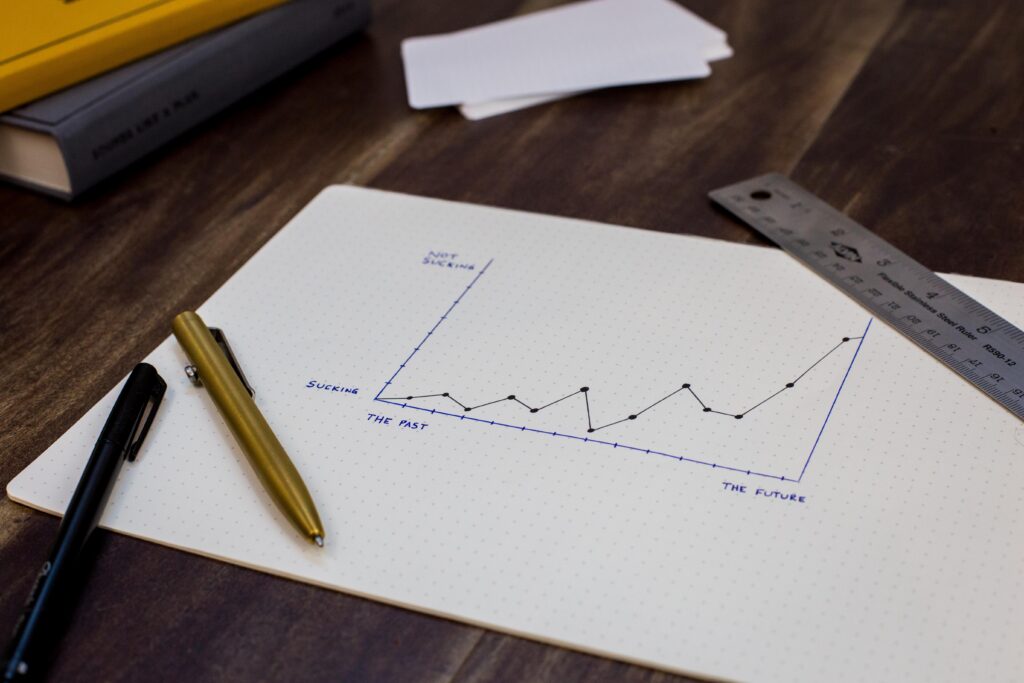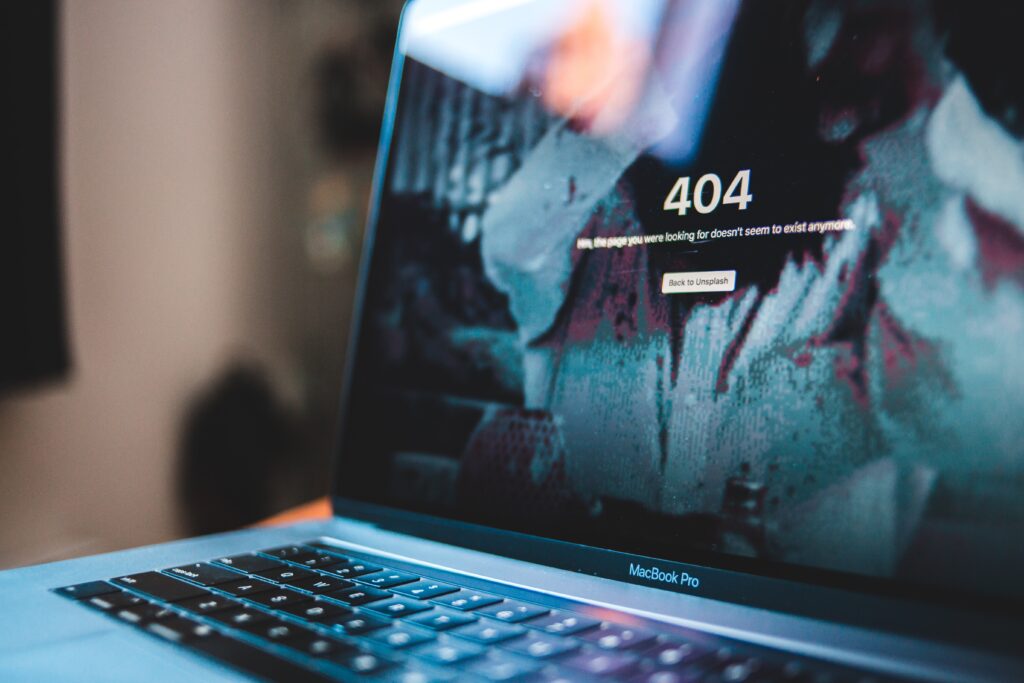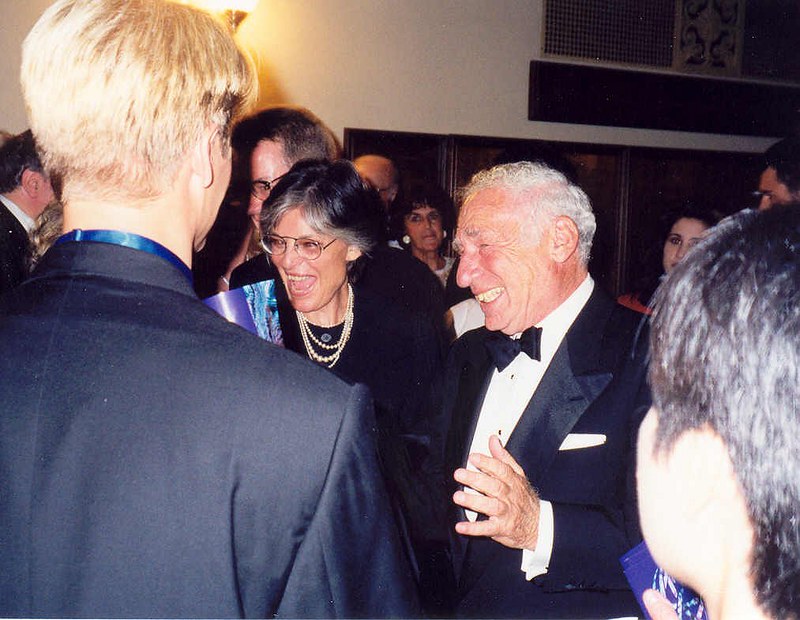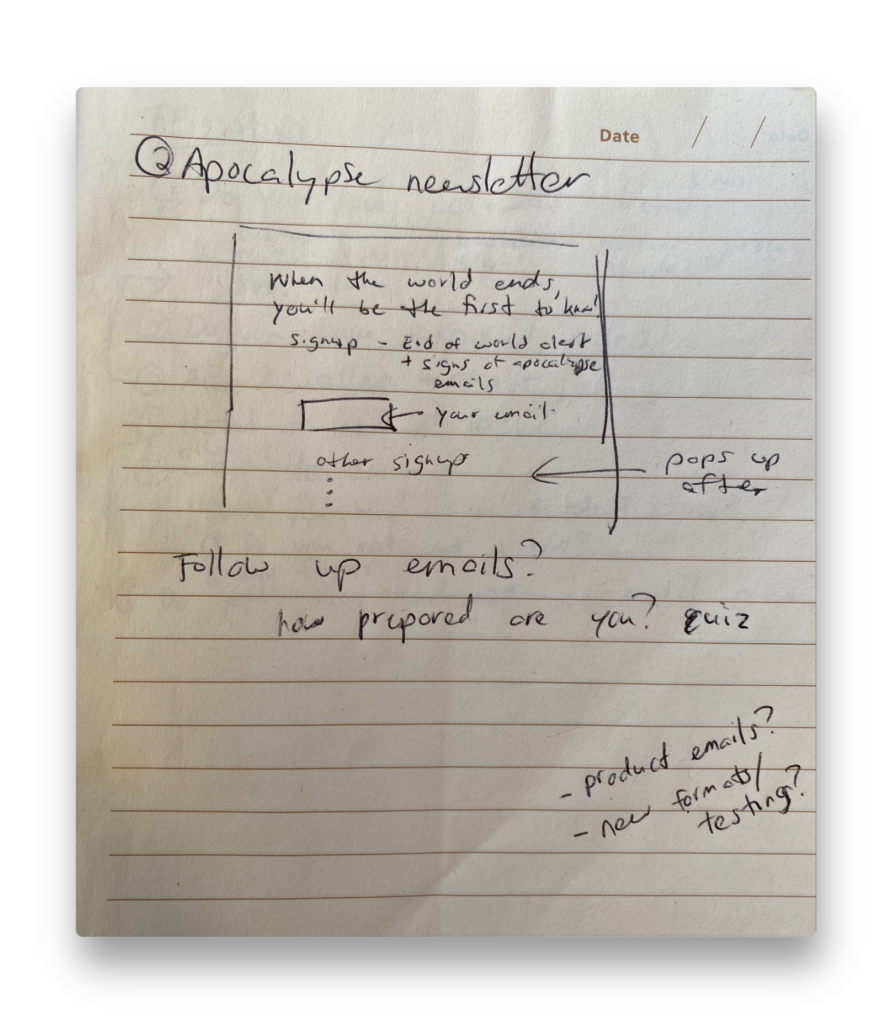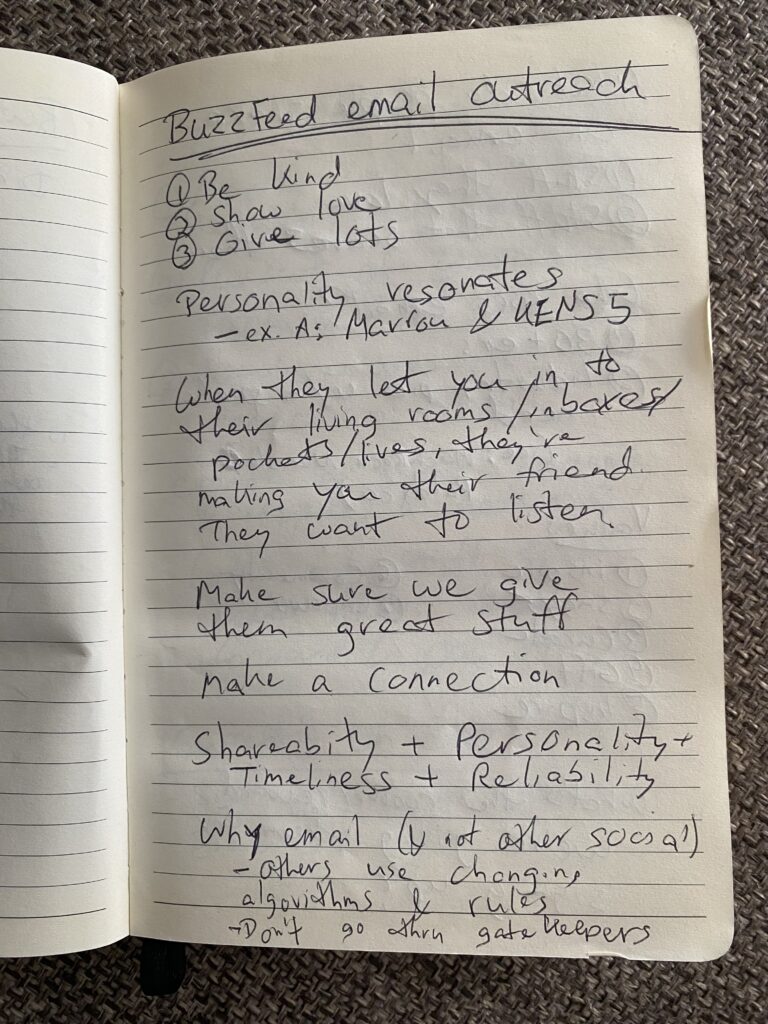
I found a notebook full of notes from my earliest BuzzFeed days — I started writing these notes back in 2012. On one page, I outlined a few rules for success for BuzzFeed’s newsletter strategy:
• Be kind, show love, give lots
• Personality resonates.
• When they let you into their inboxes, they’re making you their friend. They want to listen.
• Make sure we give them great stuff
• Make a connection
• Shareability + personality + timeliness + reliability
And those rules still apply to newsletters today.
So there are two possible explanations for this:
1) I was some sort of email genius who accurately predicted the future of the space. (Very unlikely.)
2) The rules haven’t changed much for building great products over the past decade. (Ding ding ding!)
The latter holds true for any product I’ve worked on over the past two decades. The technology changes, the terminology changes — but the basic rules for creating great stuff remain the same.
And I don’t know what the future holds, but I’d bet that in a decade, if I look back on this list, these rules still won’t have changed.
———
That’s the photo from one of my old BuzzFeed notebooks. I found it while cleaning out my apartment earlier this year.


